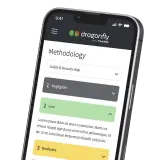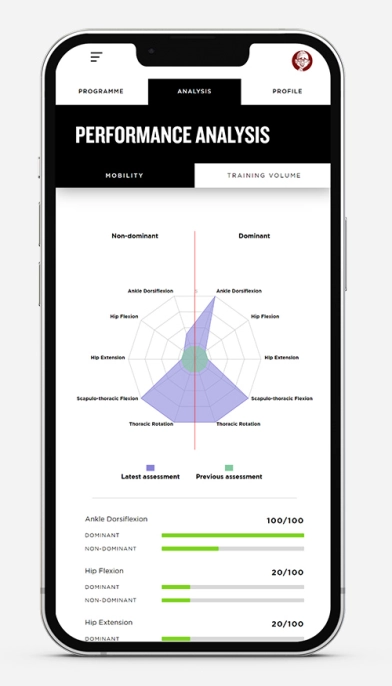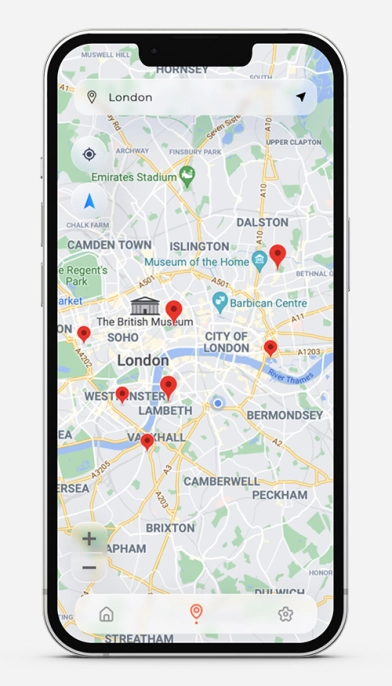From 2007 to 2018, the proportion of businesses with websites in the UK increased from 70% to 83.9%. This is no surprise in our increasingly digital age, and for businesses especially, an online presence has become paramount for a variety of reasons.
Why does my website need SEO?
Creating an online presence can be easy... if you have the time, skills and resources to create a website and social media pages, as well as regularly update them. If not, investing in a web developer or digital marketing agency can be a great way to see a return on investment!
Just being online won’t generate many leads; if anything, without promoting your website, the majority of traffic is likely to come from people who are already aware of your brand.
SEO is the most effective form of directive advertising you can utilise online! By ranking highly in search engine result pages for relevant terms, you are appearing in front of your target market when they are actively looking for your product or service!
Where to start?
High-quality website design can go a long way for your business:
- It makes your brand appear legitimate & professional, giving more chance of conversions
- You’re likely to see a lower bounce rate (more time users spend on each page)
- Your site can be analysed much easier, with a lot more detail
- It’s easier to maintain and add/edit content - as opposed to an old website written in hard code
- It will be a responsive design, which increases mobile traffic
- Faster loading speeds
- More likely to have content shared on social media
But once you have a website that you can proudly put in front of your customers... it’s time to utilise it and gain new customers!
FREE SEO Tips
Here is a list of things you can do for free to improve the search engine optimisation (SEO) of your website. This is not the be-all and end-all, but it will definitely give you a good start!
Make sure your Website is Mobile Responsive
Since 2016, mobile searches have overtaken desktop searches; so if you’re website design doesn’t fit the screen of a phone or tablet, expect a very high bounce rate!
Find out more about the benefits of responsive website design for SEO here.
Add an SSL Certificate
It makes just a slight improvement on your rankings, but changing your domain from HTTP to HTTPS sends a signal to search engines that your site is trustworthy.
Furthermore, it protects both webmasters and their users!
Check your Site Structure and find Broken Links
Search engine ‘crawlers’ hate sites with pages that are either non-existent or scattered all over the place.
Use a free tool like Screaming Frog to see how search engines view your website, so you can make it nice and crawlable!
Improve your Page Speed
Nobody likes pages that take ages to load; especially Search Engines. Use online tools such as GTmetrix or Google PageSpeed Insights to see how fast your site loads and where you need to improve.
Find more tips on how to improve page speed here.
Add ALT Tags
Optimising your images is a great way to improve page speed, but minifying them isn’t the only way to contribute to SEO.
Adding ALT text to your images informs search engines what the user can see - write a short description of each image as if you were describing it to someone with visual difficulties, and throw in a keyword or 2 while you’re at it!
Optimise your URLs
Keep you URL slugs short and sweet and add keywords where appropriate.
If you’re changing a URL, don’t forget to 301 redirect the old one to the new one!
Submit your Site to Search Engines
When you search online, you aren’t searching the entire internet, you’re browsing the index of your chosen search engine.
Google is the most popular search engine in the world, receiving more than 3.5 billion searches per day and over 90% of searches worldwide.
Other popular search engines include the following:
- Bing
- Yahoo
- Baidu
- Yandex.ru
- DuckDuckGo
- Ask.com
- AOL.com
- WolframAlpha
- Internet Archive
To add your site to Google’s Index, firstly you must create a sitemap. This is an XML document stored on your website’s server which Google’s ‘crawlers’ use to navigate through your site and analyse the content.
You can create your sitemap using third-party tools, or install a plugin such as Google XML Sitemaps if you’re using WordPress.
Then, submit your sitemap in Google Search Console.
Set up Google Search Console
It’s easy, and it’s free! Learn how to set up Google Search Console and start monitoring how your site performs in Google searches!
Install Google Analytics
Also free (just not as easy as Search Console), Google Analytics offers comprehensive data about the visits to your website and offers insights which can help shape your marketing strategy!
Create Google My Business Listing
Most of us are familiar with Google Maps - have you ever wondered how businesses appear on there?
Signing up to Google My Business is essential for allowing local customers to find you.
By adding your business details and photos, receiving good reviews, and making the most of your listing, you have an easy way of being the first result when people search for your services locally!
Submit your Site to Directories
Another easy task which is essential for Local SEO - simply add your business details to as many popular directories as possible!
This is not only a great way for more customers to find you and click on your site, but they are also more likely to see you as trustworthy.
Plus, when your NAP (Name, Address, Phone Number) appears consistently across the web, search engines take this into account as a ranking factor!
Build Social Media Profiles
In 2020, if you have a website, you more than likely have social media profiles.
If you don’t - create them now!
The most important networks your business should be using are:
Social Media Marketing is an effective strategy for business in itself, but for SEO, it’s a great way to share content and generate clicks to your site!
Create Inbound Links
Link Building is vital for SEO. No matter how well your site is built, or how relevant your content is, Google uses the links you receive from other sites as the key indicator of how trustworthy your website is.
A good inbound link profile has a massive influence on where you rank in search results!
There are many ways to gain links to your site, just make sure your methods are legitimate or you’ll be at risk of being sandboxed by Google.
As a starting point, get in touch with website owners that you know and ask for a link from them - just make sure there’s something in it for them too, such as writing a guest blog for their site.
Important! Make sure that the link text back to your website contains relevant keywords.
You want your link’s anchor text to look something like this: app development Birmingham, rather than http://www.scorchsoft.com.
Use Keyword Tools
There’s a lot of them out there, but not many are free.
Use Google Trends to find out what people are searching for, and try Google Keyword Planner to find relevant search terms, then see their search volumes and how competitive each keyword is.
Optimise your Metadata
Ensure every page on your website has a Meta Title and Meta Description using keywords, and make sure it’s enticing enough for people to click!
Create Blogs and Share them!
Your blog can be the most powerful part of your website for SEO.
By creating informative content and sharing it across the web, you’re creating unlimited opportunities to generate traffic to your site!
- Write regularly to generate pages of keyword-rich content.
- Write things that people may want to link to. e.g guidevs, advice, tutorials.
- Put social share links on pages to make it easier for users to spread the word.
- Submit useful/interesting blog entries to Medium, Mix, Reddit and Digg.
Find out more about how to optimise your blogs for SEO here.
Advanced SEO Tips
The majority of the above is fairly straight-forward, with a little experience you’ll find it all rather easy!
But there’s still a lot of SEO that hasn’t been covered, and some of it can be quite difficult to get your head around - especially as it’s a practice that is constantly changing.
Here are a couple of things that are little more technical, and may require the help of a web developer or SEO agency.
HTML Validation
Use W3 Validator to find any invalid HTML code on your site.
This isn’t as big of a ranking factor as it used to be, but it’s another free tip that can make a difference!
Find out why valid HTML matters here.
Add SCHEMA Markup
A great way to inform search engines about the content on your page and get first-page search results is to feature in Google’s Rich Snippets.
To do so, add SCHEMA Markup Data to your HTML code.




